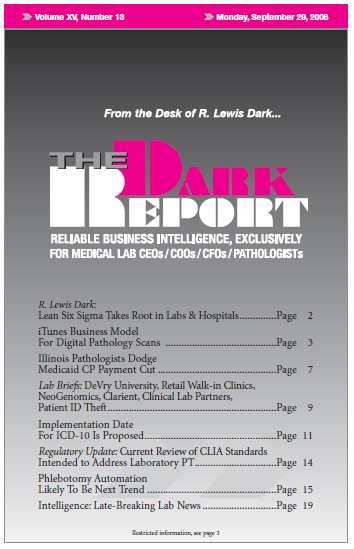MED TECH SHORTAGE CAUSES DEVRY UNIVERSITY TO OFFER MT DEGREE IN RESPONSE TO THE GROWING SHORTAGE of skilled lab scientists and medical technologists, DeVry University of Phoenix, Arizona, is offering a new bachelor’s degree program in Clinical Laboratory Science (CLS). What is notable about this development is that DeVry is a private, for-profit organization and …
To access this post, you must purchase The Dark Report.


